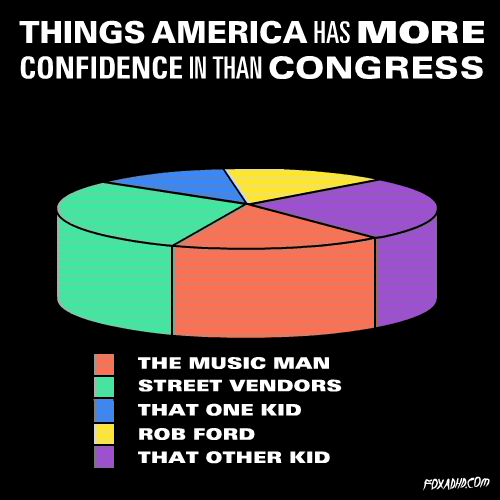
I’d like to offer some advice if you want to get elected, or you’re in the fortunate position of wanting to stay elected. Maybe you’re a career politician, or you’d like to run for office for the first time. Perhaps you live in a democracy, able to vote for your government, or maybe you don’t, and you’re wondering why not. Either way, I offer some perspective, a different way of looking at the problem of government, that I encourage you to consider.
At the Academy of the Impossible I operated the Campaign School, which invited successful politicians, campaigners, strategists, and pollsters, to share their knowledge and wisdom about electoral politics. While the focus was primarily directed toward the needs of people running for office for the first time, there was valuable knowledge for anyone interested in democratic processes.
A Crisis of Legitimacy
Specifically one of the recurring themes we tried to address, was the crisis of legitimacy in contemporary democratic politics. Governments, political parties, and especially politicians are generally regarded with cynicism and disdain. People decreasingly trust their elected leaders, and the institutions they are associated with.
It is not so much an issue of apathy, but of relevance, contact, and broader issues of representation in an era of direct interaction. Even our notions of community have radically transformed, from geographically specific constructs, to fluid and flexible configurations based on interests, ethnography, demography, or whatever cool meme or trend is playing out.
Given that our configuration of community has changed, so too has our conception of what a representative is, and what that representative should be. A general consensus among Campaign School participants was that electoral reform was necessary and overdue. Our notions of representation have changed, and existing systems have not kept up at all.
However adjacent to the issue of electoral reform, an interesting insight around relevance emerges.
Specifically I’m observing that ideology is no longer relevant to contemporary electoral democracy. We are no longer electing humans to run a government, we are electing humans to operate a machine. A growing, and rather complex machine, driven by data, and connected to a global machine, whether global village, or global market.
Therefore if you’re a politician driven by ideas, organized with comrades around an ideology, I question whether you will find success. Circumstances may still provide opportunities to share your ideology on the stage, but will you be able to deploy and carry out your ideas? We can see this happening today in Greece, as a government elected on a specific ideological platform is compelled to bend to the needs of the larger regional and global machine.
Algorithms replace Ideology
This is why I argue that the era of ideology has been replaced by the era of algorithms. Where the twentieth century was all about ideas, the twenty first century is all about code, and in particular, the algorithm.
We don’t seem to have the time for ideas when living in the era of complex systems fuelled by massive databases and surveillance streams. Rather we just react to the flows. We respond to the trending topics and whatever flares up in front of us.
Ideology is about beliefs, whereas algorithms are about methods. Ideology requires a grand vision, whereas algorithms require applied practice.
Algorithms are how we process the firehose of information. How we process living in an era of information overload. Without exaggeration we depend upon algorithms to process and describe our reality. We’re relying less and less upon ideas and imagination, but instead upon digitally constructed realities that claim an authority we’re not (yet) able to argue with.
For an ideologue, the end justifies the means. For an algorithm, the process is the purpose, there is no end. The algorithm focuses on the process, whereas ideology focuses on that end. Perhaps there’s a warning here for democracy, as the algorithmic government, devoid of any constraints or controls, governs without an end.
In my lifetime this shift from ideology to algorithm has been simultaneously subtle, and pronounced. While we cling to the language and appearances of the old regime, the new regime has rapidly emerged and replaced the old.
The cold war became the cyber war. Nuclear Armageddon has been replaced by the singularity, skynet, and the robot apocalypse. Hackers are terrorists, terrorists are hackers, and we’re all freedom fighters in the battles for our mind.
What is your Algorithm?
Therefore, to the aspiring or successful politician, I ask you, what is your algorithm? What method do you bring to the table to manage the machines? Or at least to help us understand their commands?
The politics of the twentieth century were about grand ideas. Perhaps the politics of the twenty first century needs to be about small but effective solutions? Better methods instead of steadfast beliefs? Better practices instead of rigid visions?
As a politician, think about coming to the party with a practice, a method, and solutions for the problems that plague society. People don’t want to trust you, but they may give you the chance to help them to try and fix stuff.
To be clear I’m not suggesting algorithms are better than ideologies. I’m just observing a clear shift from one to the other.
For example I don’t see the Chinese Communist Party wanting to relinquish control of the Chinese Government anytime soon. Yet are they really communist or even ideological? Rather they act as an example of a regime that focuses on algorithms instead of ideology. They could expand their political process to allow greater elections and participation, not according to ideology, but based on algorithms. This would allow for good governance while also enabling the stability that is so coveted by centuries of Chinese politicians.
An Ideology for Algorithms?
What about embedding ideology into an algorithm? That’s certainly possible, though an example of new media using old media as its content.
Emit Snake-Beings argues something similar in their paper “From Ideology to Algorithm: the Opaque Politics of the Internet”. Specifically that algorithm has replaced ideology as a method of control, the former absorbing the latter, with a focus on the role of media. The power of the mainstream media being replaced by the power of search engines and social media.
Astrid Mager also argues that search engines have ideology. That capitalism has been baked into search engines, which certainly suggests algorithms could be programed with other ideologies? What would a communist, or anarchist search engine involve?
Manuel Schaeffer argues that ideology has ended in the face of big data:
“the interconnectedness of social, economic and political problems does not allow politicians to force their agenda upon reality anymore.”
Schaeffer and I both argue that this is tied to the erosion of trust and confidence in elected politicians, however he and I disagree on whether “the era of individual leaders with big visions is likely to be over.”
We Still Need Vision and Narrative
This is where you come in. I’m suggesting that you need to combine vision with your algorithm. You’ll need to develop some analytics that give you and your electorate an empirical view of reality and using that engine to offer vision and narrative. These are not mutually exclusive, in fact they are dependent upon each other.
Left to their own devices, the technocrats will do away with politicians, in the same manner that ideology is being discarded or made irrelevant. This is why the politician needs to evolve, needs to develop new skills, in particular combine algorithmic literacy with old school storytelling. The leaders we need are the ones who can make sense of our world, so together we might be in a position to do something about it.
We should not give up trying to make the world better, or to imagine a different world altogether. Rather you have to articulate the means and not the end. The plan and the policies rather than the vision and the promises.
It’s not where you’re going, it’s how you’re able to get us there.
As for myself, I require your help with the algorithms that govern attention. If my words have helped your understanding or provided any enjoyment please help me by sharing them with others. Amplify the article via your networks triggering certain algorithms to carry these words even further.



